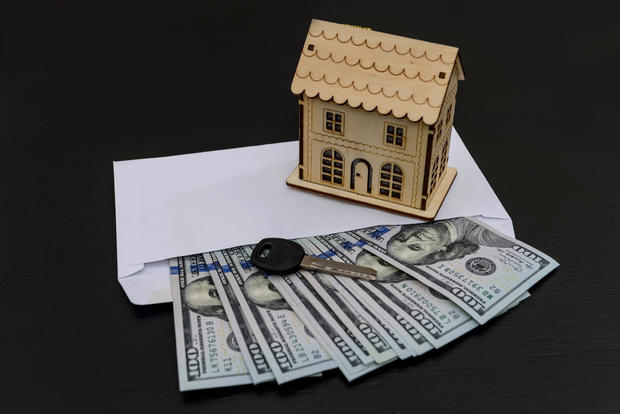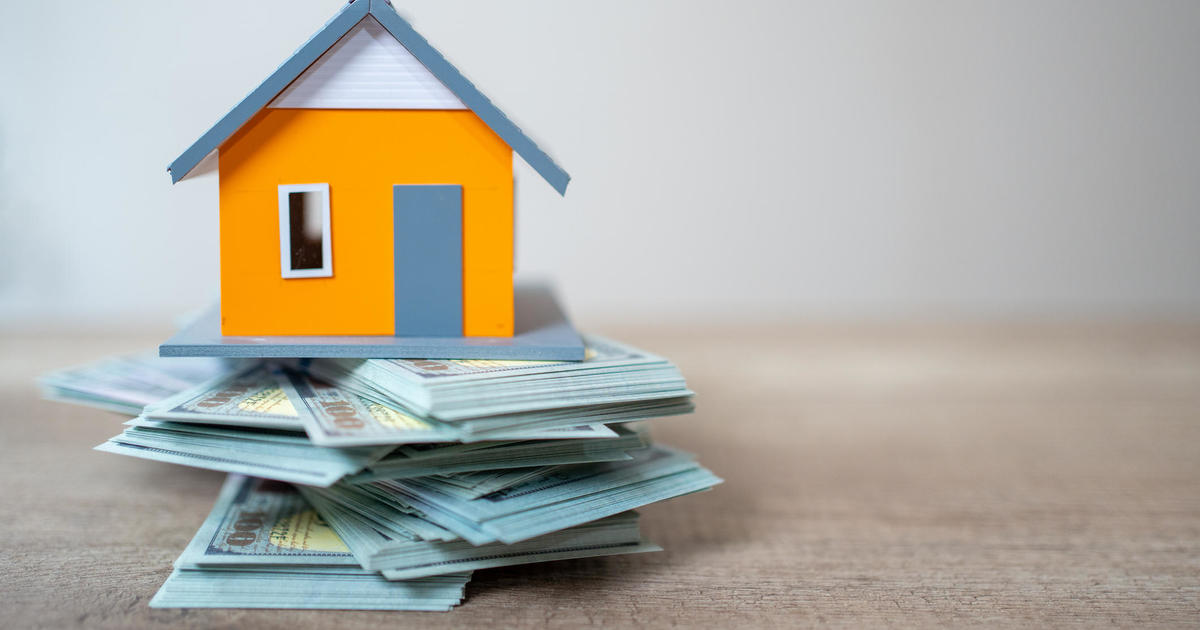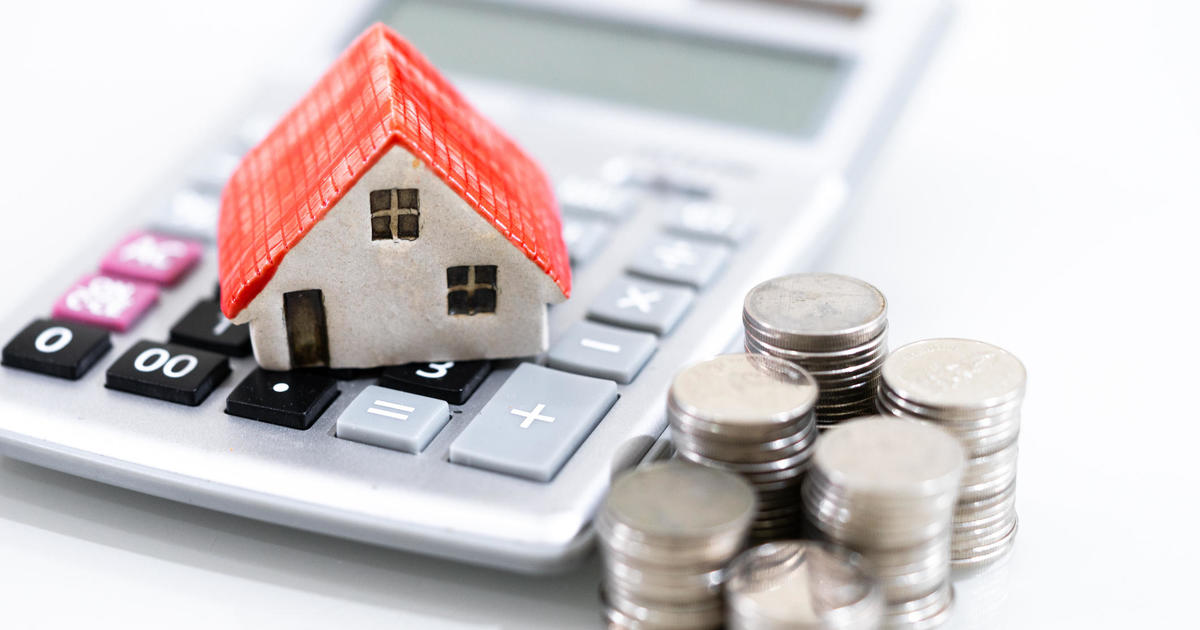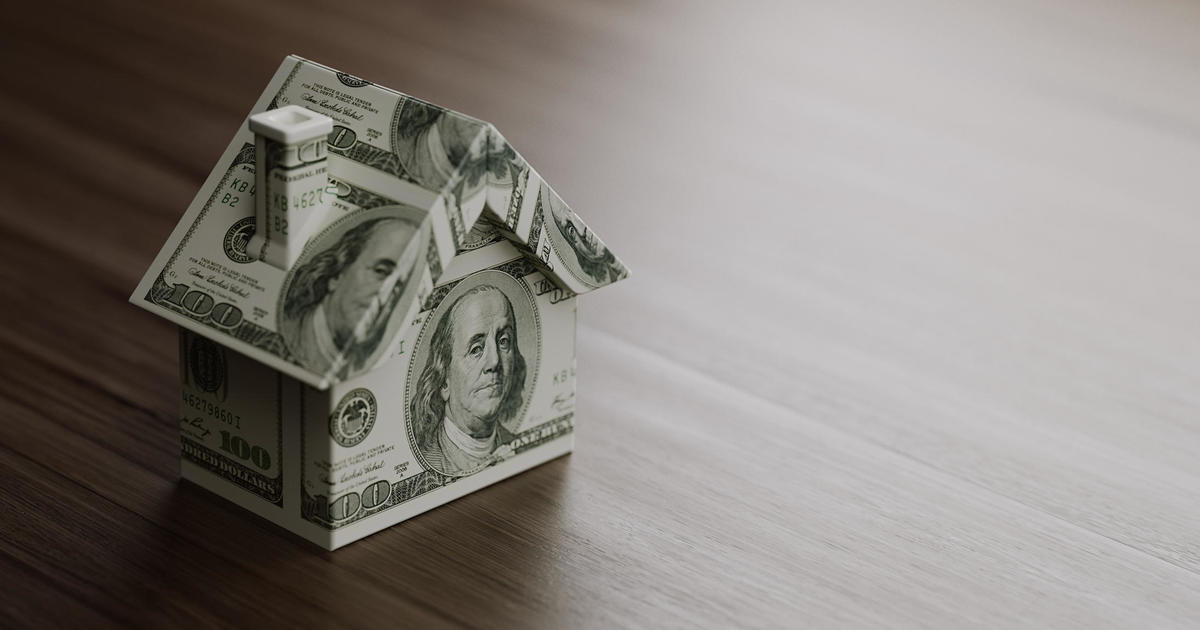How to safely tap into your home equity in a money emergency
With interest rates remaining high and prices for everyday purchases elevated, some people have had to raid their savings.
If you find yourself unable to make ends meet, with no savings left, the situation could quickly spiral. If you incur credit card debt, for example, high interest rates can make it difficult to then pay off your balance. Among large credit card issuers, the median interest rate for customers with good credit is 28.20%, according to the Consumer Financial Protection Bureau (CFPB).
Personal loans are another option, but these too often have double-digit interest rates. Homeowners, however, may be able to borrow against their home equity in a financial emergency at lower rates than credit cards or personal loans. That said, it's important to understand the risks of tapping into your home equity. Typically, this means using your home as collateral.
As such, "defaulting on your debt can lead to foreclosure, so be diligent to keep up-to-date with payments," says Hector Castaneda, principal at Castaneda CPA & Associates, PS.
If you feel like you can comfortably manage payments related to accessing your home equity, there are three primary options to choose from.
Ready to get started? See what home equity loan interest rate you could qualify for here now.
How to safely tap into your home equity in a money emergency
Here are three effective ways to access your home equity in an emergency.
Home equity loans
Taking out a home equity loan means borrowing against your home equity and receiving a lump sum that you pay off over time. The average home equity loan rate is currently 8.92%.
So, if you're in a financial emergency, you might benefit from taking out a home equity loan rather than paying high credit card or personal loan rates, assuming you're comfortable with the monthly payments.
"A home equity loan typically carries a lower rate than a personal loan or credit card, but it might not be as quickly accessible," says Adam Spigelman, senior vice president, Planet Home Lending.
If you need money quickly, one option is to first use a credit card or personal loan, says Spigelman. Then, you could consolidate your debt by using a home equity loan to pay off credit cards or personal loans.
Still, you want to make sure you're only taking out what you can afford to pay back. That's especially true considering home equity loans often give you "access to a higher amount of cash than you would with a credit card or personal loan," says Castaneda.
Learn more about your home equity loan options here now.
Home equity lines of credit (HELOC)
Another option is to open a HELOC, which can give you access to money as needed by borrowing against your home equity.
A HELOC "is more like a credit card in that you don't necessarily take out all of the equity in a lump sum but rather on an as-you-need basis," explains Castaneda.
During the first few years of opening a HELOC, you might only have to make interest payments, with the principal not being due until later on. While this can save you money, you want to be sure you can pay back the principal when it's due to avoid extra fees or, worse, default.
The average HELOC rate is currently 9.09%. That's significantly lower than most credit cards, so it can be a more affordable form of financing.
HELOCs can be "attractive because they tend to offer competitive interest rates, but keep in mind that these rates can fluctuate and affect your monthly payments. Having constant access to credit can also be tempting, so monitor spending closely," says Castaneda.
Cash-out refinances
Lastly, cash-out refinances can be a more affordable way to borrow money, and you might even be able to save money on your monthly mortgage payments, depending on your current rate.I
With a cash-out refinance, you replace your current mortgage with a larger mortgage, with the excess amount available as cash. However, you're still responsible for paying the entire loan back, including the cash-out part.
"People who need a significant amount of money are often surprised to find that cash-out refinance may be the lowest-cost option, even when they currently have a low-rate mortgage," says Spigelman.
Still, you want to be sure you run the numbers to see how different financing options affect your monthly payments and debt obligations. Also, consider the upfront costs of refinancing to make sure it's worthwhile to you. If you only need to borrow a small amount, a cash-out refinance might be overkill.
"Closing costs are generally due with some cash down, which means your financial emergency would have to be for a greater amount than the estimated closing costs," says Castaneda.
Learn more about cash-out refinancing here now.
The bottom line
Even though interest rates remain relatively high, home equity rates can be more affordable than credit cards or personal loans. However, you're putting your home at risk when tapping into your home equity, so you need to be sure you're comfortable paying back whatever you borrow.
If you can't afford to pay off the debt out of pocket and want to avoid foreclosure, you might have to sell your home, using potential equity gains to pay off your debt. Ideally, though, you'll only bite off what you can chew, and you can use home equity financing to get out of a financial emergency at a more affordable interest rate that you can comfortably pay back.




